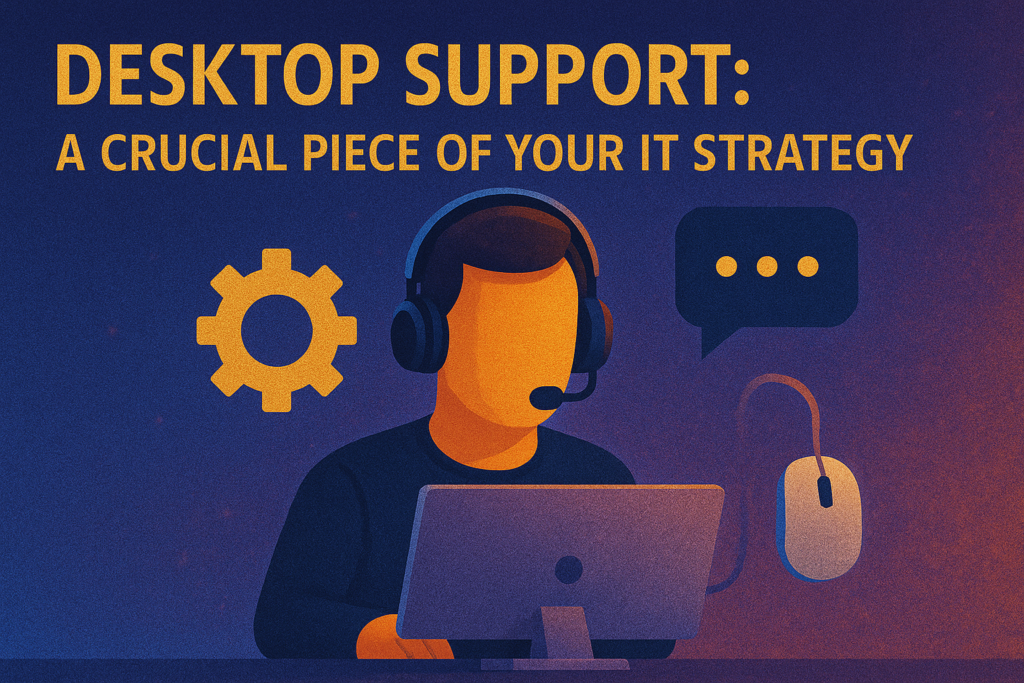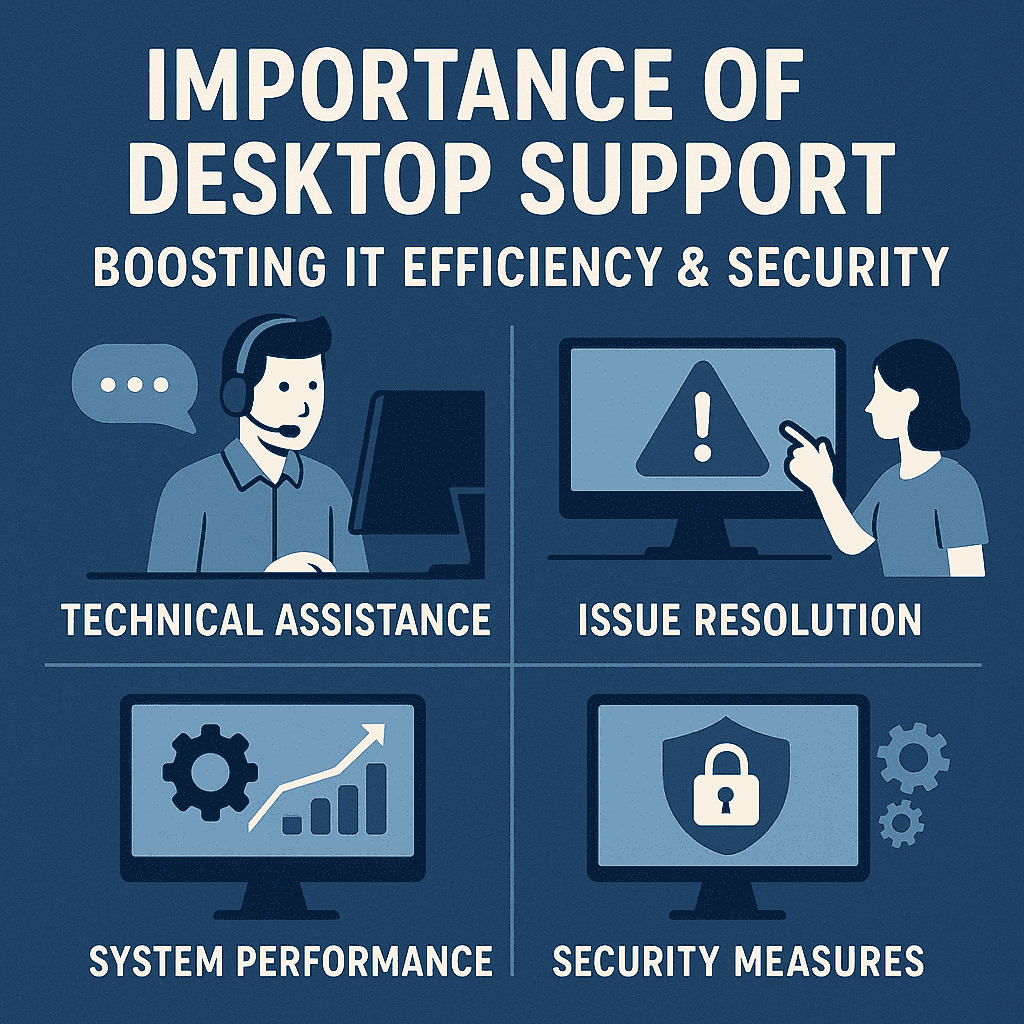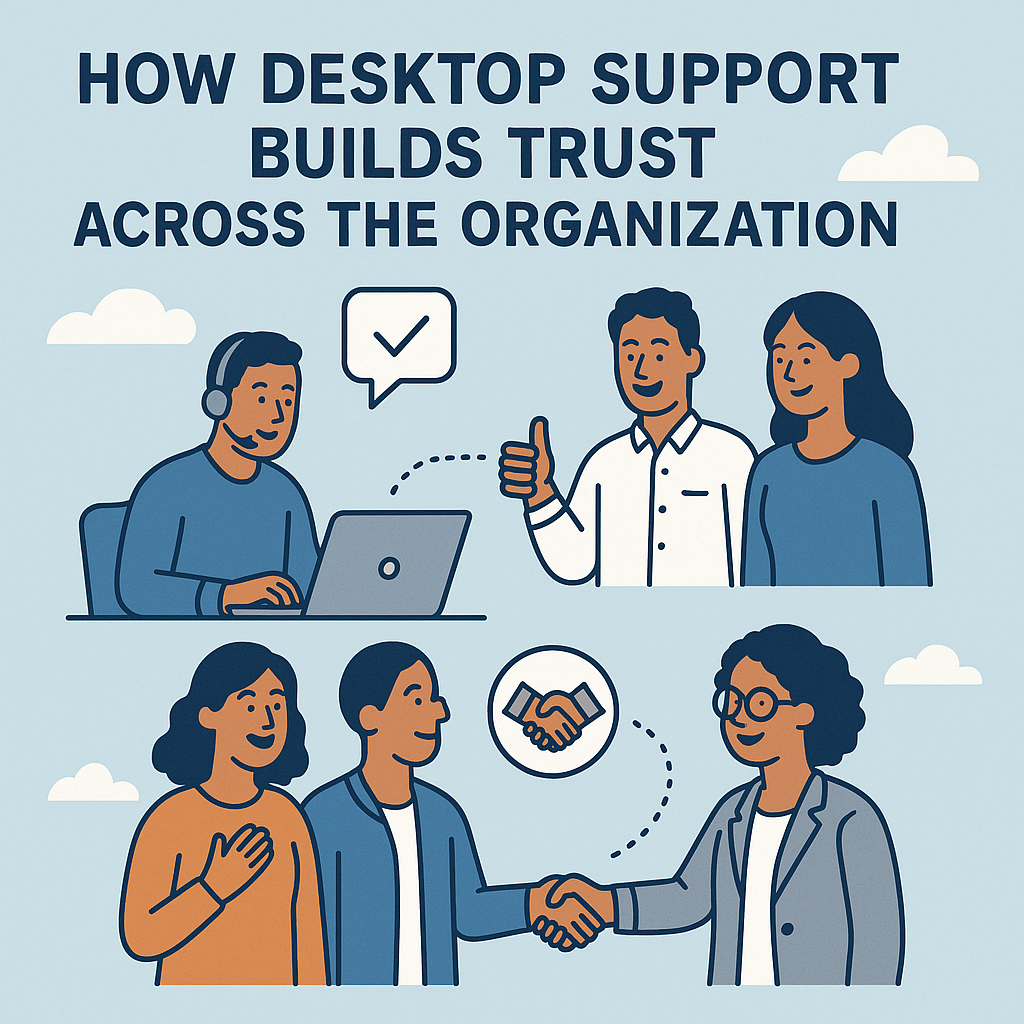Desktop Support: A Crucial Piece of Your IT Strategy

Businesses across all sectors rely on computers and networks to function efficiently. A breakdown in this chain can disrupt entire operations. That’s why desktop support—offered by skilled professionals like the computer desktop technician or IT desktop support technician—is essential. This service is not merely a reaction to technical issues but a strategic component of any IT infrastructure.
Understanding Desktop Support
What is Desktop Support?
It involves troubleshooting and resolving issues related to hardware, software, and network systems for users. This often includes the services provided by a support technician, who address everything from software glitches to hardware malfunctions.
Why Support is Essential in Modern IT
The IT desktop support team serves as the first line of defense against operational disruptions. Their ability to maintain uptime, ensure security, and support end-users makes them indispensable.
Key Job Responsibilities
The job responsibilities include:
- Installing and configuring software and operating systems
- Troubleshooting hardware issues
- Setting up new user accounts and workstations
- Maintaining and updating security tools
- Offering technical support in-person, via phone, or remotely
These responsibilities highlight the multifaceted role of the technician in modern businesses.
Types of Support Services
Remote Desktop Support Services
This enables technicians to access devices from any location to resolve issues quickly.
Onsite Desktop Support Services
Ideal for hardware problems or when physical intervention is necessary.
Managed IT Support Services
Outsourced providers manage all aspects of support for a business, often providing scalable and cost-effective solutions.
Skills and Qualifications of a Support Specialist
To be successful, a support specialist should possess:
- Strong troubleshooting abilities
- Effective communication skills
- Time management and prioritization
- Relevant certifications (e.g., CompTIA A+, Microsoft, ITIL)
These skills empower them to manage both technical and user-focused challenges efficiently.
The Strategic Role of Support Technicians
Contributing to Business Continuity
Through regular maintenance and proactive monitoring, IT support technicians prevent minor issues from escalating into serious disruptions.
Strengthening Cybersecurity
They install updates, monitor threats, and enforce security policies, ensuring that the organization’s endpoints are secure.
Enabling Digital Transformation
When businesses adopt new technology, support teams play a critical role in deployment, troubleshooting, and user training.
How to Build a Strong Support Team
Whether in-house or outsourced, a robust support services team must be:
- Technically proficient
- Reliable and responsive
- Adaptable to new technologies
- Customer-focused
Investing in skilled computer desktop technicians and continuous training is key.
Support in Remote and Hybrid Work Environments
With remote work becoming the norm, support has evolved:
- Cloud-based monitoring tools
- Mobile Device Management (MDM)
- Secure remote access setups
These developments have expanded the role and capabilities of the modern IT support technician.
Measuring Support Efficiency
Key performance indicators include:
- Average response and resolution times
- User satisfaction ratings
- Ticket backlog and recurring issues
Monitoring these helps organizations fine-tune their support services.
Frequently Asked Questions
1. What does a desktop support technician do?
A support technician installs, maintains, and troubleshoots computer systems and software, ensuring users can work efficiently.
2. Are desktop support jobs still relevant today?
Absolutely. With remote work and increasing reliance on tech, support job responsibilities are more crucial than ever.
3. What qualifications do you need to be a support specialist?
Certifications like CompTIA A+, experience in troubleshooting, and strong interpersonal skills are vital for a support specialist.
4. How does desktop support differ from help desk support?
Help desks handle general inquiries and ticketing, while support focuses on hands-on issue resolution, often requiring technical depth.
5. Can a desktop support technician work remotely?
Yes. With remote tools, many IT support technicians effectively assist users from virtually anywhere.
6. Why are desktop support services important for small businesses?
They minimize downtime, secure data, and allow small teams to focus on core business rather than tech issues.
Conclusion
A strategic IT plan without a focus on support is incomplete. Whether it’s through in-house experts or outsourced support services, ensuring smooth technical operations is essential. The presence of skilled support specialists, IT desktop support technicians, and computer desktop technicians helps organizations operate securely, efficiently, and without interruption. It’s not just support—it’s a strategic investment in your business’s long-term success.




No comment